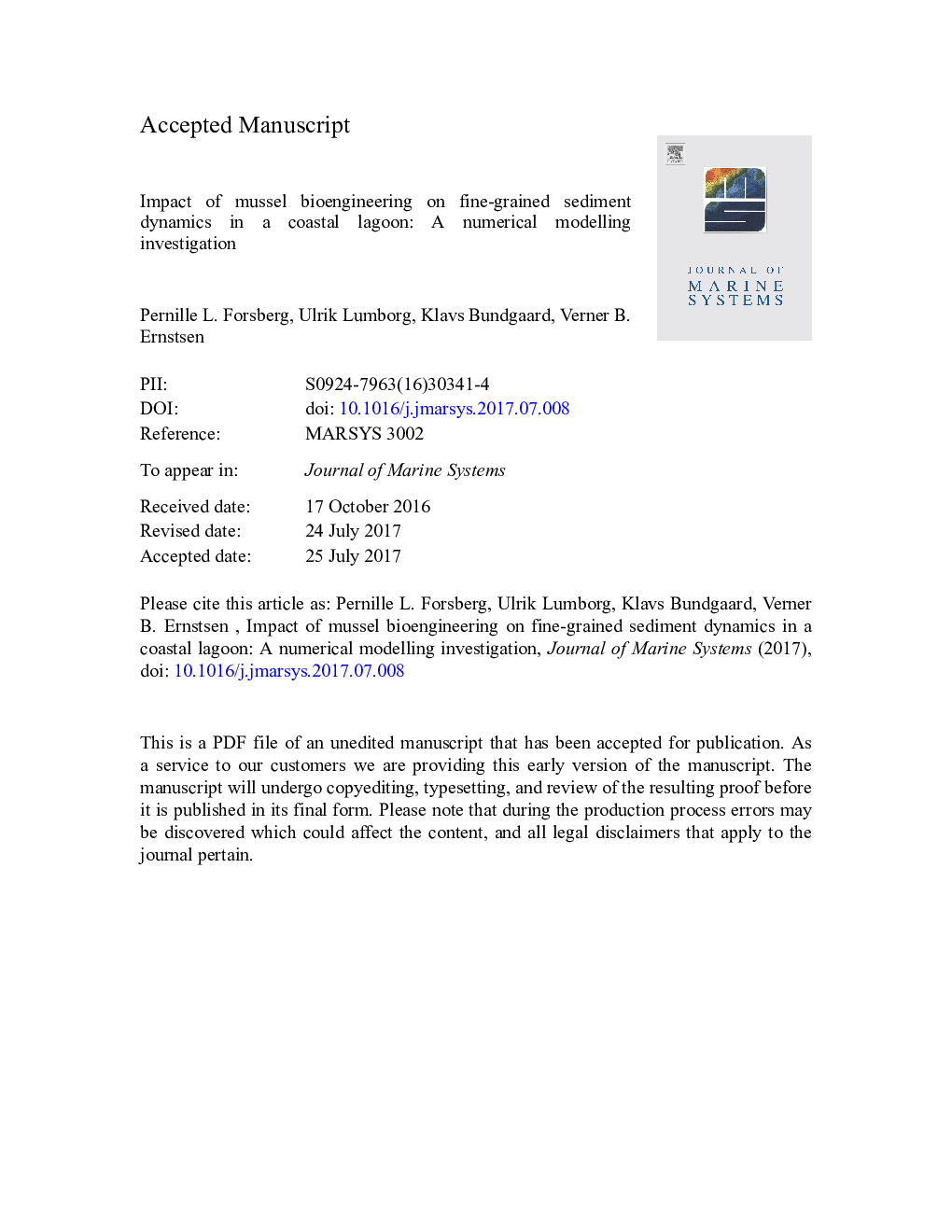| Article ID | Journal | Published Year | Pages | File Type |
|---|---|---|---|---|
| 5765942 | Journal of Marine Systems | 2017 | 32 Pages |
Abstract
Rødsand lagoon in southeast Denmark is a non-tidal coastal lagoon. It is home to a wide range of marine flora and fauna and part of the Natura 2000 network. An increase in turbidity through elevated levels of suspended sediment concentration (SSC) within the lagoon may affect the ecosystem health due to reduced light penetration. Increasing SSC levels within Rødsand lagoon could be caused by increasing storm intensity or by a sediment spill from dredging activities west of the lagoon in relation to the planned construction of the Fehmarnbelt fixed link between Denmark and Germany. The aim of the study was to investigate the impact of a mussel reef on sediment import and SSC in a semi-enclosed lagoon through the development of a bioengineering modelling application that makes it possible to include the filtrating effect of mussels in a numerical model of the lagoonal system. The numerical implementation of an exterior mussel reef generated a reduction in the SSC in the vicinity of the reef, through the adjacent inlet and in the western part of the lagoon. The mussel reef reduced the sediment import to Rødsand lagoon by 13-22% and reduced the SSC within Rødsand lagoon by 5-9% depending on the filtration rate and the reef length. The results suggest that the implementation of a mussel reef has the potential to relieve the pressure of increasing turbidity levels within a semi-enclosed lagoonal system. However, further assessment and development of the bioengineering application and resulting ecosystem impacts are necessary prior to actual implementation.
Related Topics
Physical Sciences and Engineering
Earth and Planetary Sciences
Oceanography
Authors
Pernille L. Forsberg, Ulrik Lumborg, Klavs Bundgaard, Verner B. Ernstsen,
